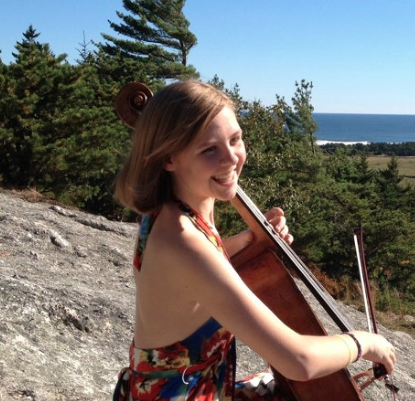Hannah is a music major whose broad research interests include jazz studies and gender theory, and her studies are focused on ethnomusicology, nonfiction creative writing, and composition. Her project centers on dissecting the altered masculinity of jazz as a subgroup and a specific examination of Billy Tipton's life and gender through the lens of jazz. At Penn she is an associate editor at PennSound and plays in the Penn Jazz Band, Penn Jazz Combos, and a trio through Penn Chamber ensembles. This summer she interned with Smithsonian Folkways Recordings and produced a series of interview podcasts called "Folkways Fast Five" in addition to updating metadata and aiding in archival digitization. She is a classically trained cellist and also plays the jazz bass and the sitar, and she has performed at the Bowdoin Music Festival, Bay Chamber Music Festival, "Cello, An American Experience" intensive, Maine Jazz Camp and Interlochen Arts Camp. Her writing has appeared on the Smithsonian Folkways website and in Cleaver magazine.
Hannah Judd
Penn Humanities Forum Undergraduate Fellow
2015—2016 Forum on Sex
Hannah Judd
Music
Navigating Gender: Billy Tipton and the Jazz Culture of Masculinity
Billy Tipton (1914-1989) was an American jazz musician and bandleader who lived his life as a man but was posthumously discovered to be biologically female. Tipton initially presented as male only in the professional sphere, only later in life presenting as male-full time, which I explore within the dichotomy of gender performativity and literal onstage performance. Tipton’s gradual shift from professional to full-time male is one I explore in the contexts of jazz, history, and culture: how did the choice benefit him, and what were his reasons for making it? In this research, I map Tipton’s choice to pass as male onto the greater ability for success in the male sphere during his life as well as the way that instruments are divided by gender in western and jazz contexts, and explore the ways that the enforced code of jazz masculinity may have proved an external incentive for doing so.



